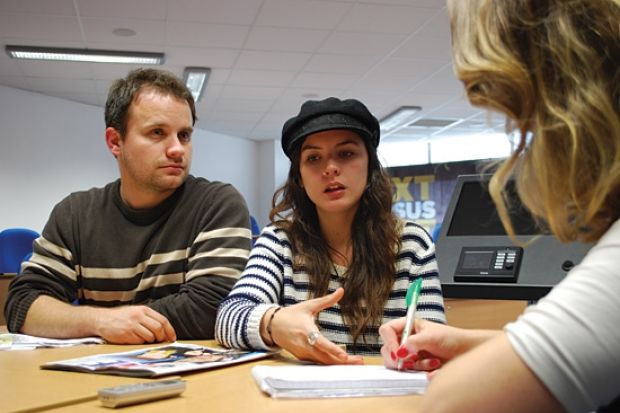Camila Vallejo has come to the UK to deliver its students a message: learn from what privatisation did to higher education in Chile or your universities will suffer the same fate.
Ms Vallejo, vice-president of the Confederation of Chilean Students (Confech) and a member of the Chilean Communist Youth, is a star in her home country and, increasingly, across the world.
In spring 2011, the 24-year-old geography student, memorably described by The New York Times as "the world's most glamorous revolutionary", led a student movement that engulfed the nation, drawing support from parents, schoolchildren and trade unions, and bringing much of Chile's capital, Santiago, to a standstill.
The protest targeted the South American country's heavily privatised and costly academy - a set-up that European countries are hurtling towards, she said.
"We understand that in Europe they are privatising the system bit by bit. Education budgets are being cut, and they are putting in place all the policies that were implemented in Chile in the 1980s," Ms Vallejo told Times Higher Education.
In Chile, more than 85 per cent of higher education funding comes from private sources, but institutional spending per student is half the Organisation for Economic Co-operation and Development average.
According to Ms Vallejo, higher education is being run like a business, with fees for often poor-quality degrees being set according to profit rather than cost in a system reliant on family debt.
"We are showing everyone what the main consequences of developing this policy are," she said, passionately rattling off a list of negative effects including socio-economic segregation, inequality and slavery to debt.
Her trip to the UK, where she attended last month's Global Student Leadership Summit organised by the National Union of Students, was part of an effort by members of Confech and the Continental Organization of Latin American and Caribbean Students to tell Chile's story - and to discourage other countries from emulating a nation that in many ways is seen as a Latin American success story.
Part of the message is that European students must lose their fear of engaging in ideological debates about education, said Paul Floor, international officer at Confech, who also travelled to the UK with Ms Vallejo.
"Students ... in Europe have not entered into profound discussions (about) the economic model and how it influences education," he said.
Out of private hands
In Chile, reforms introduced by the government this year reduced student loan interest rates from 6 per cent to 2 per cent and dramatically increased the number of scholarships available.
But for Ms Vallejo and her colleagues, this is not enough. The movement, which argues that education is a public good, will stop at nothing short of it being free and out of private hands.
"At the moment, all Chileans still subsidise the private institutions and the banks. We don't just want to modernise or improve the current model: we want to change it," said Ms Vallejo.
Chile has a booming economy (its gross domestic product is growing at 6 per cent), but it is the most unequal OECD country in terms of wealth distribution. Ms Vallejo, whose parents are both Communist activists, wants reforms that increase taxes for the wealthiest to underwrite free education.
"At the moment, for a student from a rich family, it will be much cheaper to pay fees directly than for his father to pay a fair amount of tax," she said.
But despite how much support they gathered, last year's protests failed to achieve the desired results. The movement is now venturing into politics and encouraging leaders from local groups, workers' organisations and small towns to take part in forthcoming elections, Ms Vallejo said.
The Chilean protests received wholesale support from many sections of society, said Mr Floor - a feature missing from UK student action against higher tuition fees.
"In Chile, the marches weren't only student protests but (also involved) workers and teachers, including university rectors, who saw how, day to day, the public colleges were being destroyed in favour of providing more space for private education and profit," he said.
Another lesson that European students must learn is that challenging the system means presenting alternatives, Ms Vallejo said, "not only protests in the streets but also progress through (politics), meetings and different spaces for discussion".
Ms Vallejo said that understanding and articulating this path would give European students the tools to "defend their cause with more force".
Register to continue
Why register?
- Registration is free and only takes a moment
- Once registered, you can read 3 articles a month
- Sign up for our newsletter
Subscribe
Or subscribe for unlimited access to:
- Unlimited access to news, views, insights & reviews
- Digital editions
- Digital access to THE’s university and college rankings analysis
Already registered or a current subscriber? Login
